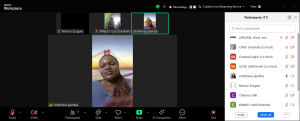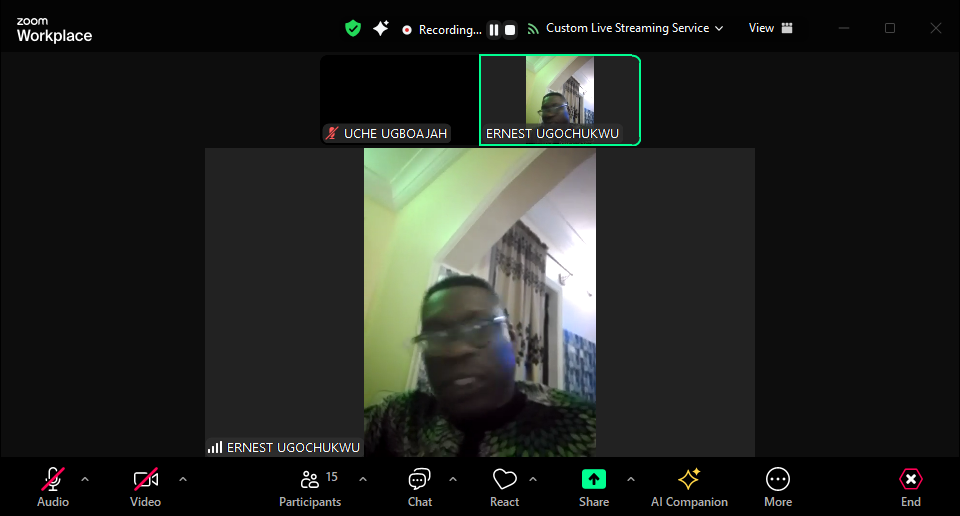Lawrence Nwimo, Awka
Two disability rights activists have voiced out against the continued political marginalisation and exclusion of persons with disabilities (PWDs) in South-East Nigeria.
The duo made their concerns known on Thursday during the Ikengaonline monthly townhall meeting themed: “Access and political participation of PWDs in the South-East.”
In their presentations, they said some practices still pose barriers, preventing persons with disabilities from exercising their legal rights and participation in the political process as citizens of the country.
One of the guest speakers, Comrade Ugochukwu Okeke, Chairman of Joint National Association of Persons with Disabilities (JONAPWD) Anambra State Chapter, stressed that access and political participation are intricately linked, as access facilitates participation, which in turn fosters inclusion.
He said laws in the land have paved the way for such inclusion of persons with disabilities in every governance and political sphere but PWDs are still rarely visible in the political space of the region.
“The National Disability Act provides a framework for promoting the rights and participation of persons with disabilities (PWDs) in the political process. Part 5, Section 30 of the Act captures the importance of encouraging PWDs to participate fully and actively in politics.
“Section 52 of the Act emphasises the responsibility of governments to ensure that PWDs have access to and can participate equally in politics and public life. Additionally, Section 54 of the Act outlines the role of political parties in facilitating the participation of PWDs in politics, including providing accessible and inclusive practices that enable PWDs to participate fully in the political process.”
The JONAPWD Chairman said despite the gains of the provisions, the disability community are often not considered in political matters and are mostly treated as second class citizens and afterthoughts in matters that concern them.
Highlighting the significant barriers PWDs face in participating in politics in South-East Nigeria, he pointed out that many political parties do not even recognise PWDs’ fundamental human rights, including the right to vote and be voted for.
He said parties often hold meetings in inaccessible locations, such as upstairs without elevators, and at night when PWDs may face mobility challenges. He also said PWDs in rural areas often lack access to information about meetings and elections, further limiting their participation.

Corroborating, Chidimma Ajemba, Publicity Secretary of JONAPWD Anambra State, lamented that PWDs in the region are often used as campaign tools by politicians and parties seeking to gain sympathy votes and political positions.
“During political campaigns, politicians and their parties remember PWDs and make promises to improve their welfare and inclusion.
“However, after the elections, PWDs are forgotten and left to fend for themselves,” she said.
Chidimma cited the lack of accessible infrastructure, discrimination, and stigma as some of the challenges faced by PWDs in the region. She also lamented the absence of PWDs in decision-making positions and the failure of governments to implement policies and programmes that promote the inclusion and empowerment of PWDs.
She called on governments and politicians in the region to take concrete steps to address the challenges faced by PWDs and to promote their inclusion and empowerment.
“We demand that governments and politicians in the South-East region take immediate action to address the challenges faced by PWDs. This includes providing accessible infrastructure, promoting inclusive governance and employment, and ensuring the participation of PWDs in decision-making processes.”

